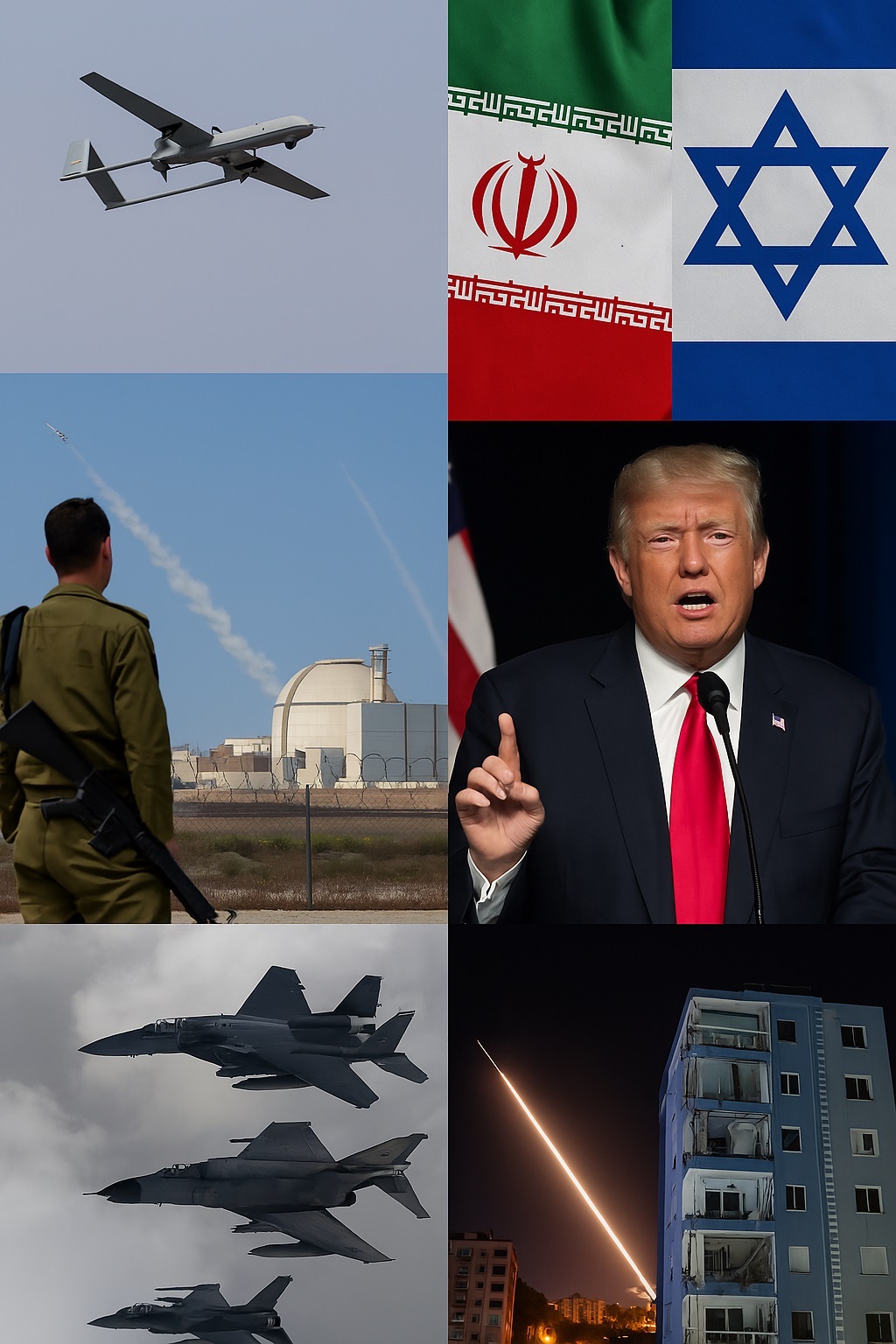Middle East on the Brink: Iran-Israel Conflict Escalates Amid Global Alarm

June 2025 — The Middle East is once again at the epicentre of global tension as Iran and Israel plunge into a dangerous cycle of military escalation. What began as a retaliatory drone interception has spiralled into a full-blown regional crisis, drawing in global powers and threatening to destabilize an already volatile region.
Drone Interceptions Spark Firestorm
The latest flashpoint ignited when a US-led coalition intercepted two Iranian drones over Iraq, reportedly en route to Israel. The drones were downed near the Ain al-Asad airbase, a strategic site housing foreign troops. This came in response to Israel’s earlier strikes on Iranian military and nuclear facilities, which Tehran described as a “grave provocation.”
The coalition’s involvement signalled a broader international entanglement, with the United States confirming its role in intercepting Iranian projectiles. Iran, in turn, issued a stark warning: any Western military support for Israel would render US, British, and French bases in the region legitimate targets.
Backchannel Diplomacy Through Cyprus
In a surprising diplomatic twist, Cyprus emerged as a conduit for secret communications between Iran and Israel. Cypriot President Nikos Christodoulides confirmed that Tehran had asked his government to deliver messages to Israel, though the content remains undisclosed. The move hinted at Iran’s interest in de-escalation, even as missiles continued to fly.
Christodoulides also criticized the European Union’s sluggish response and called for an emergency meeting of the EU Foreign Affairs Council. With Iranian missiles reportedly visible from Cyprus, the island’s strategic proximity to the conflict has placed it at the heart of regional diplomacy.
Civilians in the Crossfire
As the conflict intensified, Israel issued evacuation warnings to civilians near Tehran’s nuclear facilities, signalling potential follow-up strikes. Defence Minister Israel Katz warned that Tehran could face devastation akin to Beirut’s wartime destruction.
Iran’s Revolutionary Guard Corps (IRGC) responded with a barrage of missiles and drones, targeting Israeli fuel infrastructure and energy centres. One of the most devastating attacks struck a coastal town in Israel, killing at least four people and injuring over 100. Residential buildings were reduced to rubble, and emergency crews worked through the night to rescue survivors.
Iran Seeks Mediation, Trump Promises Peace
Amid the chaos, Iran reached out to Qatar and Oman, seeking international mediation. Foreign Minister Abbas Araghchi expressed openness to nuclear negotiations but insisted Iran would not accept any deal that compromised its sovereignty.
Meanwhile, US President Donald Trump declared that “peace is coming soon” and that Iran and Israel “will make a deal.” His optimism, however, was met with scepticism, especially as Iran accused the US of complicity in Israel’s strikes.
Threats of a Wider War
Iran’s warnings escalated further, with threats to strike American, British, and French military bases if they continued to support Israel. The Pentagon and NATO allies began repositioning assets, and Western embassies in Tehran were placed on high alert.
The UK and France, while not directly involved in the defence effort, have signalled readiness to act if necessary. The US has already deployed additional F-15s and destroyers to the region, reinforcing its commitment to Israel’s defence. A Fragile Path Forward
With both nations entrenched in their positions and civilians bearing the brunt of the violence, the path to peace remains uncertain. The international community faces a critical test: can diplomacy prevail over destruction, or will the region descend into a broader war?
As the world watches, the stakes could not be higher.



0 Comments
No comments yet, be the first to comment